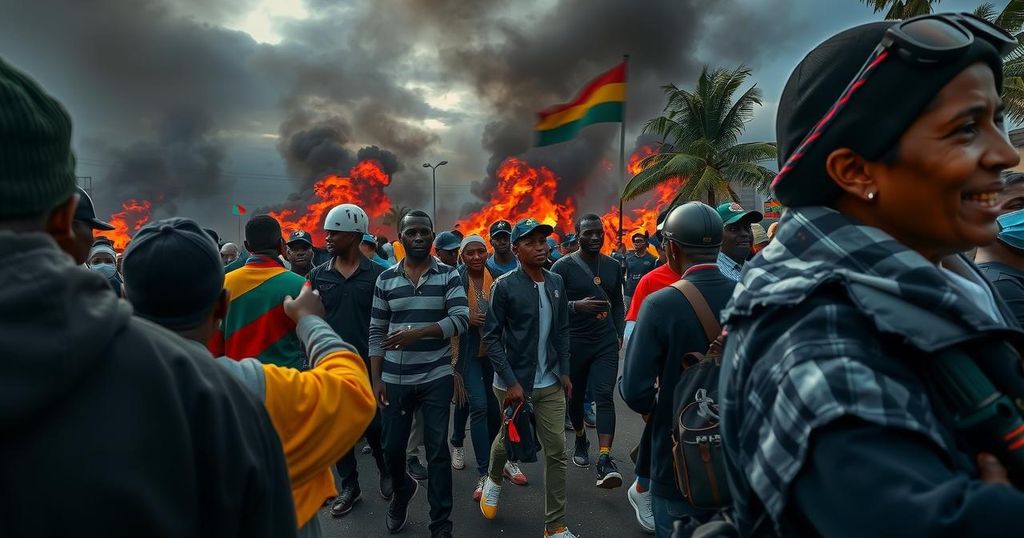Mozambique is experiencing severe unrest following disputed elections on October 9, with allegations of state violence resulting in numerous casualties. The Southern African Development Community is convening a summit to address the humanitarian crisis, which is exacerbated by an ongoing regional drought. Calls for intervention are growing as Mozambique’s political instability threatens regional economies reliant on its ports.
The aftermath of Mozambique’s contentious election on October 9 has plunged the nation into severe unrest, with allegations of state violence leading to numerous fatalities. Civil society accuses police forces of killing twenty individuals amidst protests against the ruling party’s declared victory. Following this, the Southern African Development Community (Sadc) is faced with mounting pressures to address the crisis, which is exacerbated by a regional drought affecting millions. With significant economic implications for neighboring countries that rely on Mozambican ports, Sadc is convening a summit to prioritize the issue, as humanitarian concerns escalate within the population. The political turmoil in Mozambique is rooted in a long history of electoral disputes dating back to its independence in 1975. Following the disputed elections, the opposition has faced violent suppression, compelling some leaders into exile, while calls for regional and international intervention grow louder. The humanitarian crisis has worsened as reports of state-sanctioned brutality emerge, with hundreds injured and detained. As the impact of these events reverberates across Southern Africa, Sadc leaders must balance immediate responses against long-standing governance issues within member states, challenging their credibility and effectiveness.
Mozambique’s current crisis is set against a backdrop of a history marked by electoral violence and economic instability. The recent elections, which have been marred by allegations of corruption and fraud, have ignited widespread protests fueled by discontent over governance and human rights abuses. In the face of escalating violence, regional leaders within the Sadc are confronted with the urgent need to restore order and address humanitarian concerns while navigating the complexities of political allegiance and regional stability.
In conclusion, the post-election turmoil in Mozambique highlights a critical juncture for the Southern African Development Community. The escalating violence and humanitarian crisis necessitate a unified and effective regional response, particularly as neighboring countries are intimately tied to Mozambique’s political and economic health. As international observers call for accountability and respect for human rights, it remains imperative for Sadc to address these challenges to avert further destabilization in the region and promote sustainable governance practices.
Original Source: www.theeastafrican.co.ke







